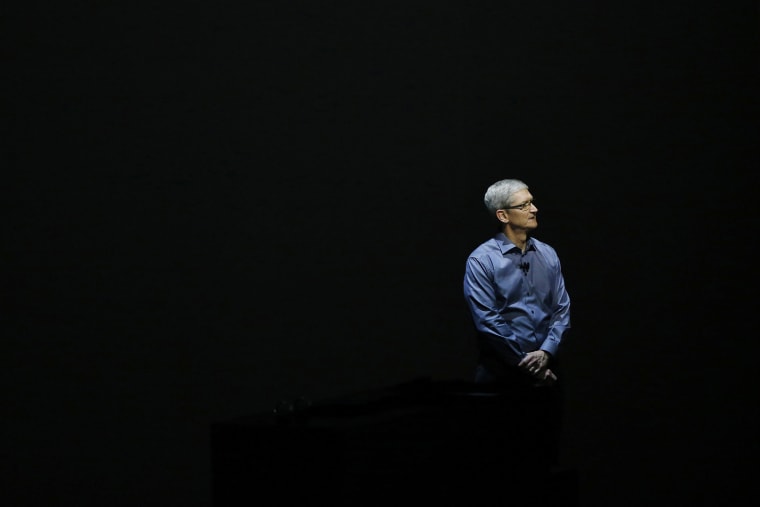Donald Trump blasted Apple for its rejection of a court order to cede encrypted data to the FBI from the iPhone used by one of the San Bernardino shooters.
"I agree 100 percent with the courts," Trump told the hosts of "Fox and Friends" Wednesday. "We should open it up. I think security overall. We have to open it up and we have to use our heads. We have to use common sense."
A radicalized couple rampaged the Inland Regional Center in San Bernardino, California on December 2 before being killed in a shootout with police. 14 people were killed. Authorities later said that the attackers tried to take more lives with a rigged pipe bomb that never detonated.
The U.S. Attorney's Office in Los Angeles maintained that the FBI needed Apple's compliance to access "relevant, critical … data" on a shooter's locked iPhone.
"Our country has got so many problems," Trump said. "These are two people radicalized who were given a wedding party by the people that they killed. There's something going on. We have to be very careful. We have to be very vigilant. But to think that Apple won't allow us to get into her cell phone - who do they think they are? No, we have to open it up."
Sen. Marco Rubio, Trump's rival for the GOP nomination, took a more conciliatory tone and called for the private sector to work with the government in times of war. "There is no easy answer on the encryption issue. On the one hand this encryption is designed to prevent people from having unauthorized access to your private information. On the other hand, there are terrorists and criminals who are using encryption to protect themselves. So I really think this is going to require us to work very closely with the tech industry to find a solution. I believe there is one."
Apple CEO Tim Cook called the order an "an overreach by the U.S. government" in an open letter published on Tuesday. The letter stated that the court order "has implications far beyond the legal case at hand," and that building a backdoor to the iPhone could compromise users' data security. It continued to say that Apple was outraged by the act of terrorism and mourned the lives lost in San Bernardino. Cook then wrote that the company had "great respect for the professionals at the FBI" and that "opposing this order is not something we take lightly," but contended that unlocking the iPhone would establish a "dangerous precedent."
Trump rejected this line of argument: "Apple, this is one case. And this is a case that certainly we should be able to get into the phone and we should find out what happened, why it happened. And maybe there's other people involved and we have to do that."
Apple has five days to respond the court if it finds compliance to be burdensome.
